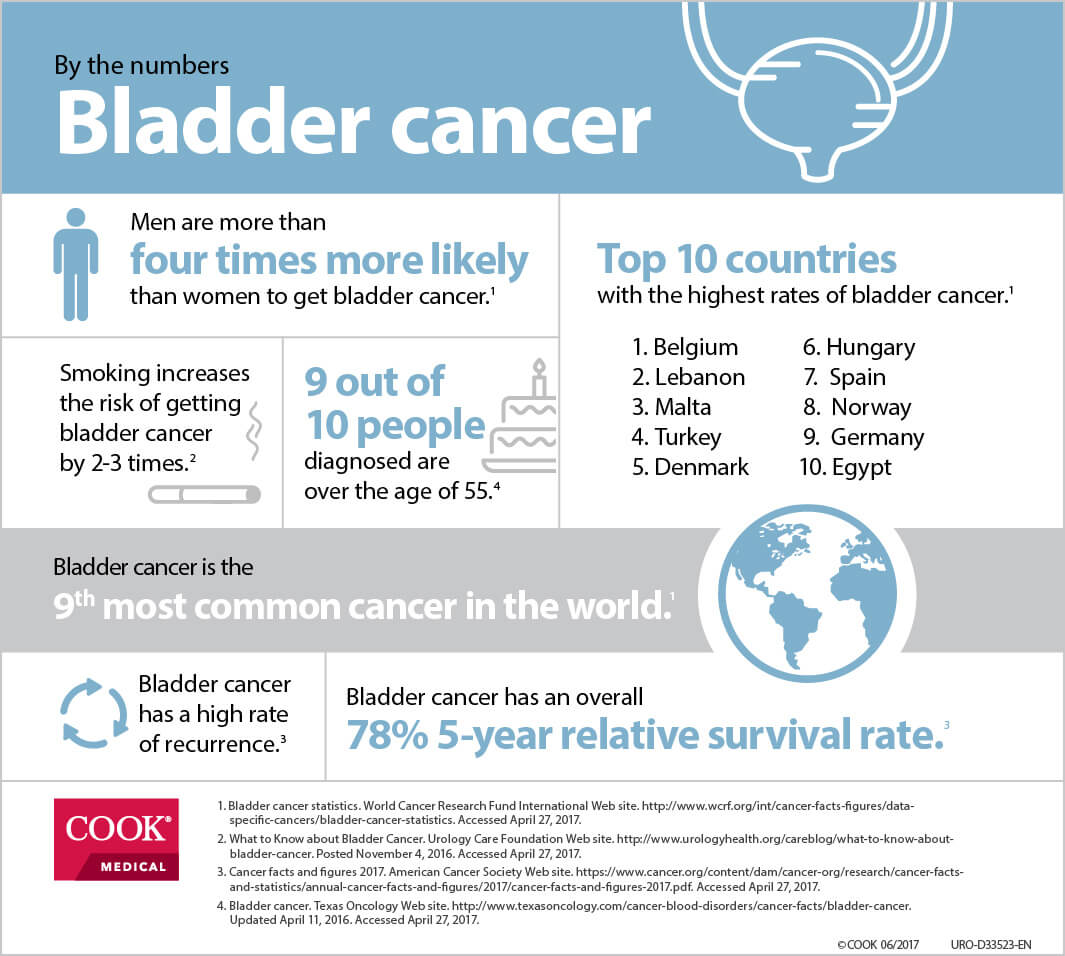According to the World Cancer Research Fund International, bladder cancer is the ninth most common cancer in the world.1 In 2012, nearly 10 out of every 100,000 people were diagnosed with bladder cancer in more developed regions of the world.1 It’s the sixth most common cancer in men,2 and men are more than four times more likely to get bladder cancer during their lifetime than women.1
Causes
Bladder cancer is caused when changes or mutations in the genes of normal bladder cells make them grow abnormally. Most gene mutations related to bladder cancer are acquired during a person’s life, and inherited gene mutations are not thought to be a major cause of this disease.3 Acquired gene mutations can be random or they can be a result of exposure to cancer-causing chemicals or radiation, such as tobacco smoke and other chemicals.
Are you at risk?
Certain risk factors like gender and age can’t be changed, and the stats show that men and people over 55 are more likely to be diagnosed with bladder cancer.4 However, some risk factors can be changed. These include:
- Smokers are 2-3 times as likely to get bladder cancer as nonsmokers.5
- Workplace exposure to certain industrial chemicals, including those used in the dye, rubber, leather, textiles, printing, and paint industries.6
- Certain medicines or herbal supplements.6
In addition to limiting exposure to certain chemicals and being a nonsmoker, drinking a lot of fluids – mainly water – may lower a person’s risk of bladder cancer.6
For more information on bladder cancer signs, symptoms, diagnosis, staging, and treatment options, visit the American Cancer Society’s website.
Share our infographic on bladder cancer to help raise awareness for this disease.
- Bladder cancer statistics. World Cancer Research Fund International Web site. http://www.wcrf.org/int/cancer-facts-figures/data-specific-cancers/bladder-cancer-statistics. Accessed May 10, 2017.
- Worldwide data. World Cancer Research Fund International Web site. http://www.wcrf.org/int/cancer-facts-figures/worldwide-data. Accessed May 10, 2017.
- What causes bladder cancer? American Cancer Society Web site. https://www.cancer.org/cancer/bladder-cancer/causes-risks-prevention/what-causes.html. Accessed May 10, 2017.
- Key statistics for bladder cancer. American Cancer Society Web site. https://www.cancer.org/cancer/bladder-cancer/about/key-statistics.html. Accessed May 10, 2017.
- What to know about bladder cancer. Urology Care Foundation Web site. http://www.urologyhealth.org/careblog/what-to-know-about-bladder-cancer. Accessed May 10, 2017.
- Bladder cancer risk factors. American Cancer Society Web site. https://www.cancer.org/cancer/bladder-cancer/causes-risks-prevention/risk-factors.html. Accessed May 10, 2017.
